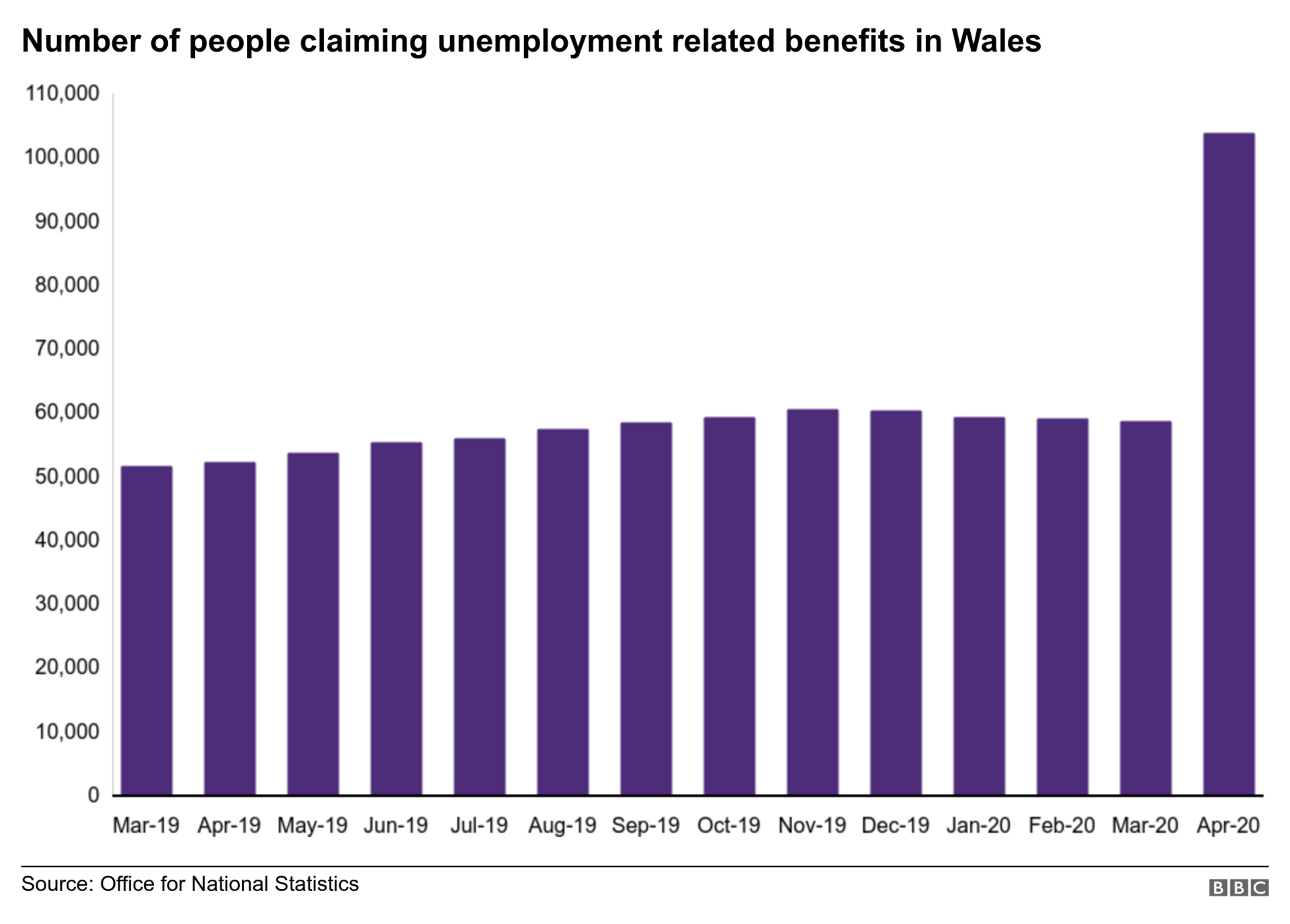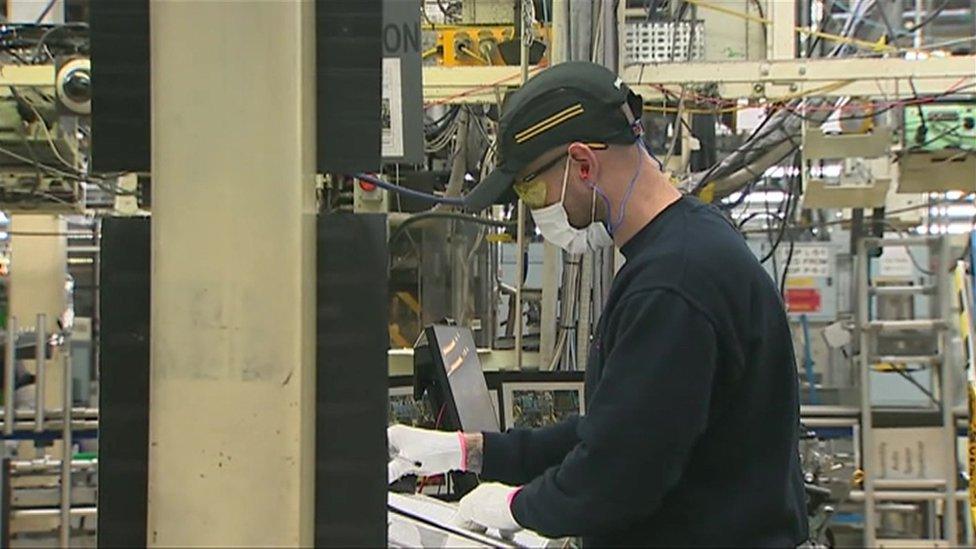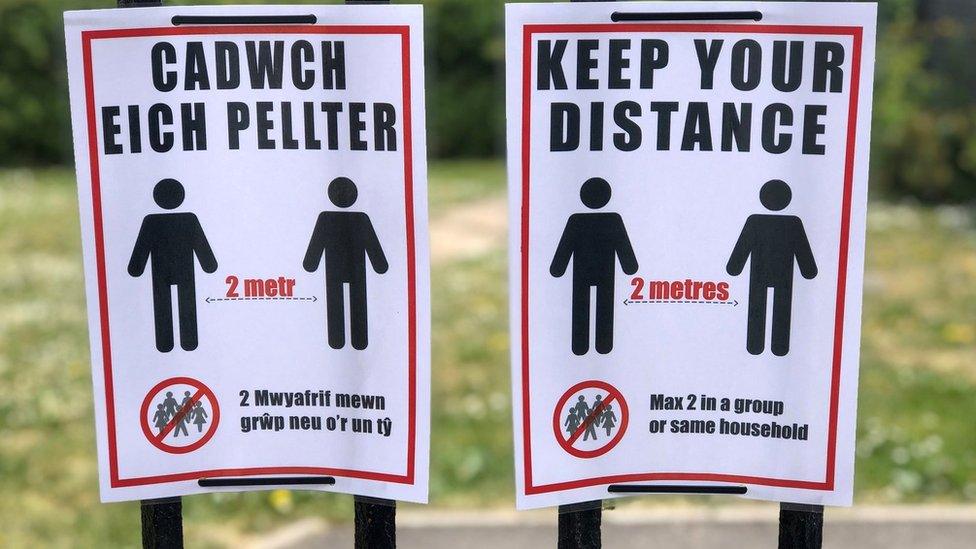Coronavirus: Jobless claimant count in Wales nearly doubles
- Published
- comments

The number of people claiming unemployment-related benefits in Wales leapt in April, the first full month of the coronavirus lockdown.
There were 103,869 claimants compared with 58,576 in March.
It took the claimant rate from 3.9% of the Welsh workforce to 6.8%, compared with 5.8% across the UK.
The UK total soared to 2.1 million in April, an increase of 856,500, the Office for National Statistics (ONS) said.

Economy Minister Ken Skates said: "This crisis has placed incredible challenges on our economy, and around the world there are signs of record contractions and significant unemployment."
Figures for January to March also showed unemployment at 3.2%, compared with 3.9% across the UK, an increase in Wales of 4,000 more than between October and December.
The three-month figures only cover the first week of the lockdown and the total is likely to worsen sharply in the coming months.
They show that that there were 44,000 fewer people working in Wales in the first three months of this year compared with the same period in 2019.
The benefit claimant count from the Office of National Statistics does not include everyone who is out of work, since not everyone is entitled to claim assistance, but it does indicate the trend in the employment market.
Apart from Northern Ireland, Wales has the highest proportion of 16-64 year olds (23%) who are not working and not able to work, for instance because of ill health, caring for someone or being a student.
'I've applied for many roles, all without luck'

Student Alaw Davies (right) said employer graduation schemes have been cancelled due to Covid-19
School leavers and university graduates will find it harder to find work this year, according to the Institute for Student Employers (ISE) which said almost a quarter (23%) of entry-level jobs had been cut across Britain as a result of Covid-19.
Alaw Davies, 22, from Cardiff, who is in her final year at University College London, said she had applied for a number of graduate schemes which have since been cancelled.
"I was hoping to enter the working sector as soon as possible after finishing my studies in May, so I've applied for many roles, all without luck, which I was expecting to some extent," she said.
"I think most people find the period after graduation a bit uncertain, but this pandemic has definitely increased this uncertainty."

Student Dan Clarke and apprentice Gwern Rowlands share their experiences
The situation is also difficult for people like 19-year-old Cardiff gap year student Dan Clarke who had to return from Japan due to the pandemic.
"With school and universities shut there are a lot of young people looking for jobs at the moment, therefore it's very competitive and I've had trouble finding a job in Cardiff," he said.
Apprentice woodworker Gwern Rowlands, 18 from Llanuwchllyn in Gwynedd, has had to stop his college training due to social distancing rules.
"I'm still young so, hopefully, I've still got plenty of time to learn," he said.
"Hopefully when I'm starting out on my own coronavirus will be gone."

Analysis by BBC Wales Economics Correspondent Sarah Dickins
Today's claimant count statistics show what happened in the labour market 10 days after lockdown.
They are the most dramatic figures we have had so far about the economic impact of strategies to combat coronavirus.
Additionally, they are actual numbers of people in Wales who are getting benefits because they are out of work whereas unemployment figures are based on a survey.
It must be remembered that they are a short-term snapshot and could be reversed.
However, what is not known is how many of the workers presently furloughed and paid 80% to stay at home will be taken back into work, and how many will lose their jobs when the furlough scheme is reduced or comes to an end.
Figures also published today by the ONS show a steep fall in the number of job vacancies across the UK.
Between February and April they fell 170,000 to 637,000, a record fall across three months.
While today's unemployment figures for the first three months of 2020 showed an increase of 4,000 in the total for Wales, and a rate of 3.2%, the same set of statistics published next month are likely to see a greater increase.
- Published19 May 2020

- Published19 May 2020

- Published19 May 2020

- Published19 May 2020
